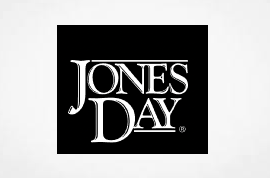Source: Mondaq
In Short
The Situation: Scams related to U.S. trademark filings are becoming more common and sophisticated, making these scams increasingly difficult for trademark owners to identify.
The Result: Trademark-related scams have serious consequences, such as invalidated registrations, voided trademark applications, and financial loss.
Looking Ahead: Trademark owners can avoid falling victim to common trademark scams by familiarizing themselves with the characteristics of these scams and directing any correspondence involving trademarks to their trademark counsel.
The U.S. Patent and Trademark Office (“USPTO”) has reported a proliferation of trademark-related scams. Trademark owners should be wary of any correspondence received regarding their trademarks that requests a payment for services, such as the types of scams described below.
Common Trademark Scams
USPTO Impersonation Scams. These scams include spoofed phone calls and correspondence on letterhead made to look like official USPTO correspondence. Spoofed phone calls typically appear to come from legitimate USPTO phone numbers with area codes associated with the USPTO’s headquarters or regional offices and request payment for unnecessary trademark-related fees.
Fake correspondence and invoices may include made-up names like “Trademark Compliance Center” or “U.S. Patent and Trademark Bureau” that sound similar to the “U.S. Patent and Trademark Office.” To give the correspondence an air of legitimacy, scammers may include publicly available information, such as the trademark registration number. Invoices may take the form of requesting renewal fees or fees that the USPTO does not charge, such as publication or recording fees. Renewal invoices typically include fake, earlier deadlines, leading to a false sense of urgency.
Trademark Filing Firms. These firms claim to offer inexpensive trademark filing services but do not have trademark lawyers on staff and may impersonate licensed attorneys. The firms typically do not perform all the services for which they are paid.
A common tactic to drum up business by these firms is to send emails to companies warning that another entity will file applications for trademarks or domain names for their company marks or names. The scammers advise they are providing a chance to reserve the trademark or domain name, or the company will have to cease using its name or mark to comply with U.S. trademark laws.
Private Databases. In exchange for thousands of dollars, scammers offer to “publish” a trademark in their private database and monitor the mark for infringement. While publication by the USPTO is a part of the trademark registration process, publication in a private database is unnecessary.
Fake Cease-and-Desist Letters. Some scams involve copying a law firm’s trademarks or attorney names in cease-and-desist letters and takedown notices, which are sent on behalf of trademark owners without their knowledge. The communications seek payment for the use of trademarks, which is pocketed by the scammer.
Tips for Avoiding Scams
- Be suspicious of correspondence that stresses urgency, such as letters or invoices advising that you must immediately pay a renewal fee to avoid cancellation of a registration or that another party is seeking to register the same mark as your business name.
- Hire a licensed trademark attorney to file your trademark applications instead of a non-attorney filing firm or anyone claiming to be a USPTO “preferred service provider” or “partner organization.”
- The USPTO does not issue invoices to trademark owners or ask trademark owners to pay fees by email or over the phone. If someone claiming to be from the USPTO contacts you by email or phone about upcoming deadlines, requests payment, or sends you an invoice, alert your trademark counsel. If an attorney has filed trademark applications on your behalf, the USPTO will communicate directly with that attorney.
- Check correspondence for the following common markers of a scam: typos (especially in the letterhead), the wrong office name (for example, “the Patents Office” rather than the USPTO), and overuse of a government seal.
If you believe you have been scammed, follow the USPTO’s steps for reporting the scam [https://www.uspto.gov/trademarks/protect/what-to-do-if-you’ve-been-scammed] and contact a trademark attorney to ensure your trademarks are properly filed and renewed.
Three Key Takeaways
- With trademark scams on the rise, it is crucial that trademark owners are vigilant and trust their instincts—if something feels off about a purportedly official communication, it may be a scam.
- Trademark owners who are represented by counsel should be wary of any communications sent directly to them rather than to their trademark counsel.
- Trademark owners should reach out to their trademark counsel if there is any question of whether a communication from the USPTO or a third party is legitimate.
The content of this article is intended to provide a general guide to the subject matter. Specialist advice should be sought about your specific circumstances.




